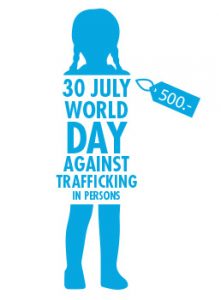The United Nations’ (UN) International Day against Nuclear Tests brings public awareness and education about the effects of global nuclear weapon tests. The day aims to end nuclear testing and to promote peace and security.
Background
The history of nuclear testing began on July 16, 1945, when an atomic bomb was used at a desert test site in Alamogordo, New Mexico, in the United States. More than 2000 nuclear tests were carried out worldwide between 1945 and 1996. Nuclear weapons tests are generally broken into different categories reflecting the test’s medium or location:
- Atmospheric tests.
- Underwater tests.
- Underground tests.
Over the years, there have been calls to ban nuclear test to ensure the protection of people’s lives and the environment around them. The UN approved a draft resolution in late 2009 for an international day against nuclear tests to raise public awareness about the threats and dangers of nuclear weapons. It was also hoped that UN’s member states would move towards the idea of nuclear disarmament.
The International Day against Nuclear Tests was declared to be annually held on August 29, which marks the closing of one of the world’s largest nuclear test sites (in Kazakhstan) in 1991. The day is devoted to enhancing public awareness and education about the effects of nuclear weapon test explosions or any other nuclear explosions. It also promotes the need for a nuclear weapon-free world. The day’s first official observance was marked for August 29, 2010.




 The United Nations’ (UN) International Day for the Remembrance of the Slave Trade and its Abolition is annually observed on August 23 to remind people of the tragedy of the transatlantic slave trade. It gives people a chance to think about the historic causes, the methods, and the consequences of slave trade.
The United Nations’ (UN) International Day for the Remembrance of the Slave Trade and its Abolition is annually observed on August 23 to remind people of the tragedy of the transatlantic slave trade. It gives people a chance to think about the historic causes, the methods, and the consequences of slave trade.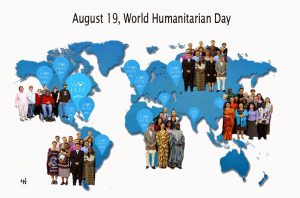 Every year, thousands of men and women the world over put their lives in danger working in Humanitarian causes all over the world. Working in the most poverty and illness stricken third world countries the world over, often in areas of great social violence, these dedicated heroes put their lives on the line, and sometimes lose them in the pursuit of their goals. World Humanitarian Day is when we remember these heroes and their sacrifices.
Every year, thousands of men and women the world over put their lives in danger working in Humanitarian causes all over the world. Working in the most poverty and illness stricken third world countries the world over, often in areas of great social violence, these dedicated heroes put their lives on the line, and sometimes lose them in the pursuit of their goals. World Humanitarian Day is when we remember these heroes and their sacrifices. “Leave your folly and you will live,
“Leave your folly and you will live,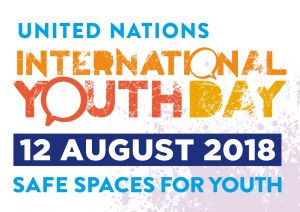 The theme for International Youth Day 2018 is Safe Spaces for Youth.
The theme for International Youth Day 2018 is Safe Spaces for Youth. A fertile imagination can place before us wonderful situations that we could only dream of.
A fertile imagination can place before us wonderful situations that we could only dream of.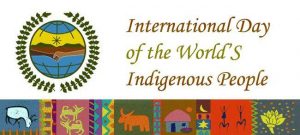
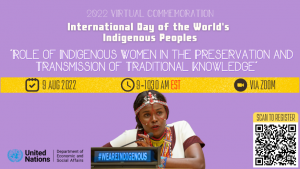 In 2004 the assembly proclaimed the Second International Decade of the World’s Indigenous People (2005-2014). The assembly also decided to continue observing the International Day of Indigenous People annually during the second decade. The decade’s goal was to further strengthen international cooperation for solving problems faced by indigenous peoples in areas such as culture, education, health, human rights, the environment, and social and economic development.
In 2004 the assembly proclaimed the Second International Decade of the World’s Indigenous People (2005-2014). The assembly also decided to continue observing the International Day of Indigenous People annually during the second decade. The decade’s goal was to further strengthen international cooperation for solving problems faced by indigenous peoples in areas such as culture, education, health, human rights, the environment, and social and economic development. Recognizing him for who he is,
Recognizing him for who he is,